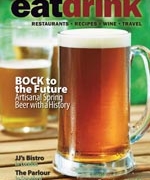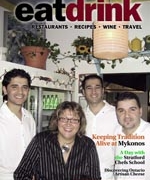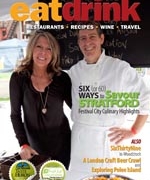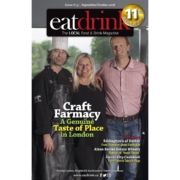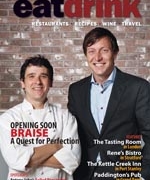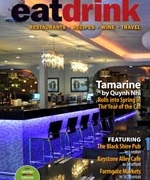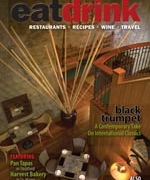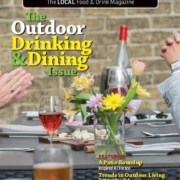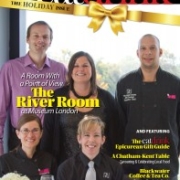The Luck of the Fortune Cookie
The telling of interesting stories must come with the territory when your middle name is the number 8 (Chinese for prosperity) instead of a word, as Jennifer 8. Lee proves in her book, The Fortune Cookie Chronicles: Adventures in the World of Chinese Food. The chronicles begin with the symbolic item that all ends all meals in a Chinese restaurant – the simple, yet venerable, fortune cookie. Lee writes: “For people who don’t have time to contemplate the life well lived or read Confucius, Immanuel Kant, or Aristotle, fortune cookies provide the Cliffs Notes version of wisdom.” Along with pithy bits of insight, the slips of paper inside the cookies also offer a set of lucky numbers for lottery players. On a fortuitous day in 2005, beyond all statistical probability, the Powerball lottery was won by 110 people across the United States – all playing the same numbers “spoken” to them by fortune cookies. This intriguing story sets Lee off on a cross-country spree to the Chinese restaurants that had unwittingly passed on the lucky numbers to the jackpot winners.
It is on this journey that the thread of Chinese culture links together stories of kosher food in Chinese-Jewish restaurants, the takeout delivery revolution in Manhattan in 1976, the debate over hand-made versus machine-made fortune cookies, and the invention of the folded takeout cartons. All these stories in Chinese food history emphasize the immigration of the Chinese people and the Americanization of their food, even going so far as giving the nickname of “Frankensauce” to soy sauce made in the United States, which is drastically different from the naturally-brewed sauces, aged as wine would be, in China. Even the creation of the fortune cookie has endured a legal battle; far from authentic Chinese confectionary, a U.S. federal judge officially deemed it to have originated in San Francisco by Asian immigrants.
Lee’s overriding theme throughout the book is that Chinese food in the United States may be named after its country of origin, but it is not Chinese and she concludes that “the Americanness of fortune cookies should have served as a hint for what else I was to learn about Chinese food … As a child, I never considered it strange that the food we ordered from Chinese restaurants didn’t quite resemble my mom’s home cooking.” But Chinese food has become a world-wide, family ritual and does not have to originate in China but rather “incorporate indigenous ingredients and utilize Chinese cooking techniques,” resulting in Szechuan alligator in Louisiana and chow mein sandwiches in Rhode Island. Even General Tso’s Chicken, a staple in American-style Chinese restaurants, is unfamiliar to most restaurant cooks in China.
The cultural tidbits uncovered by Lee’s investigations around the world are enthralling and the phenomenon that led to numerous U.S. citizens winning the jackpot with the same mass-produced grouping of random numbers from a fortune cookie may go down as one of history’s great mysteries. Was it just luck or could it have been fraud? There may be no definitive answers, but most of us continue to be transfixed by the proverbial wisdom that fortune cookies offer, whether it’s for a new direction in live, improved health and happiness, or just a bit of extra money. Lee’s book underscores that good things can happen when you pick up a bag of takeout from your favourite Chinese restaurant and keep the faith that anything is possible when the luck of the fortune cookie is with you.

